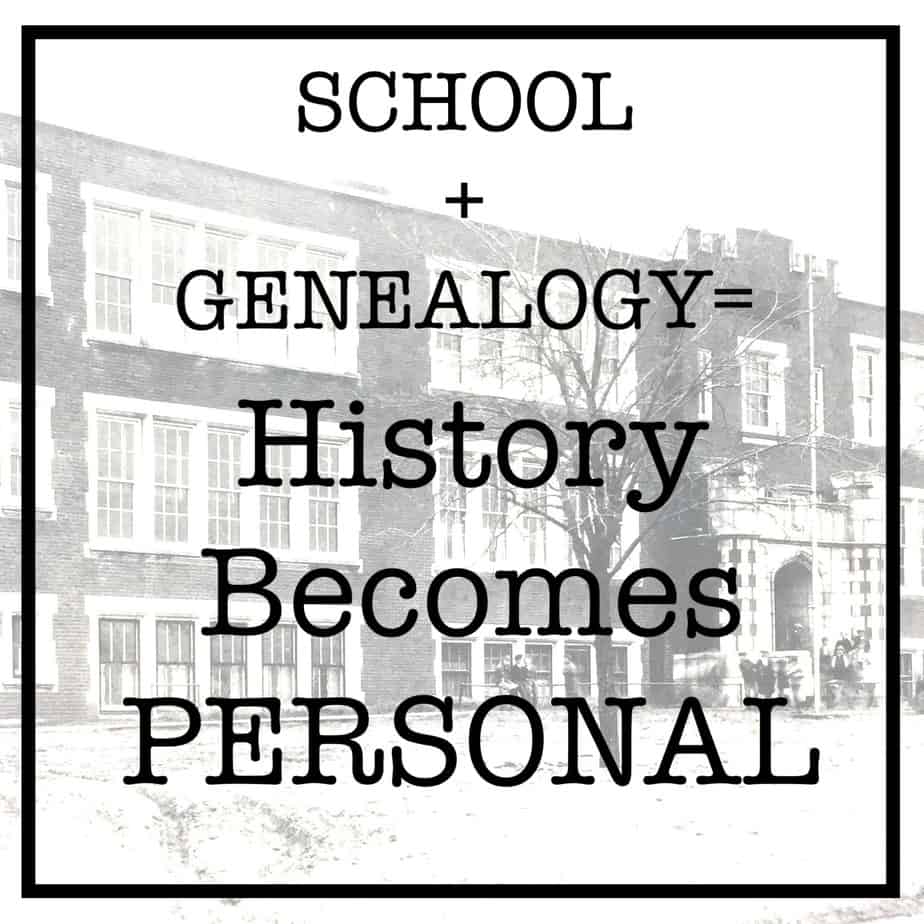
Let’s start with three truths: I homeschool most of my children. My favorite subject is history. My favorite pastime is genealogy. All three of these intersect at a very sweet spot. I decided when I started homeschooling nearly six years ago, that I would incorporate our ancestors into our history lessons whenever possible. I wanted our children to understand that the big events of history involved real, everyday, average people who participated in and were affected by these events. I wanted our children to understand the complexities and nuances of historical events in a way that can only be understood at the micro-history level. I wanted our children to understand that while fashions, common phrases of speech, and technologies have changed over time, life is really much the same for us as it was for men and women long ago. We have needs, likes, loves, losses. We have talents, triumphs and contributions we make to the bigger society. This, I found, could best be done through a study of our ancestors in their place in history.
The War of 1812 becomes more real when you learn that your 5th great grandfather, a shoemaker, served at the battle at Fort McHenry. And that shortly after the war ended, he moved his family away from Baltimore to small town Kentucky.
The Cherokee Trail of Tears pricks at your heart when you realize that your own kin were forced to march on that trail. Their land was stolen. Their culture nearly stamped out through boarding schools and laws against speaking the native language.

Westward Expansion hits close to home when you learn that some of your Mormon Pioneer ancestors came by wagon train, others by handcart. Most had already been forced out of city after city by angry mobs. Some had been disowned by family members for joining the Mormon faith, and traveled alone. Some lost their lives on the trail. Some made it to Utah, others moved on to Idaho or Arizona. A few were jailed for polygamy. All made tough decisions to cross a vast country into the unknown to start a new life.
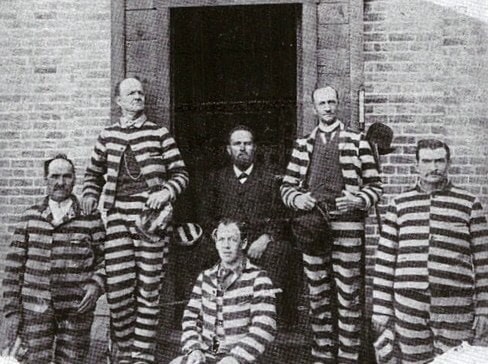
The Civil War requires a lot more complex thought when you learn that you had ancestors fighting on both sides of the war, sometimes from the same family. All were fighting for a cause they believed in. Some were slave owners. Some treated their slaves poorly while others tried their best to assist their former slaves in finding success post-Emancipation.
The Great Depression feels real when you learn about your great-great grandfather losing his job, and having to move his young family in with extended family to have food and shelter. And you see their happy, but threadbare-clothed, photos during that time.
World War II becomes even more compelling when you learn that almost all of your great-grandfathers, and even one of your great-grandmothers, served in the war in the Army, Navy and Marines. One came home severely injured. None lost their lives, but all lost someone close.
When genealogy is incorporated into a study of history, the history is no longer something far distant and disconnected from us. It becomes personal, a direct link between you and the past. This can happen whether you homeschool, or your child attends public school. This can happen whether you have deep United States roots (as I have highlighted in this post), or you have ancestry in any part of the world during any historic period.
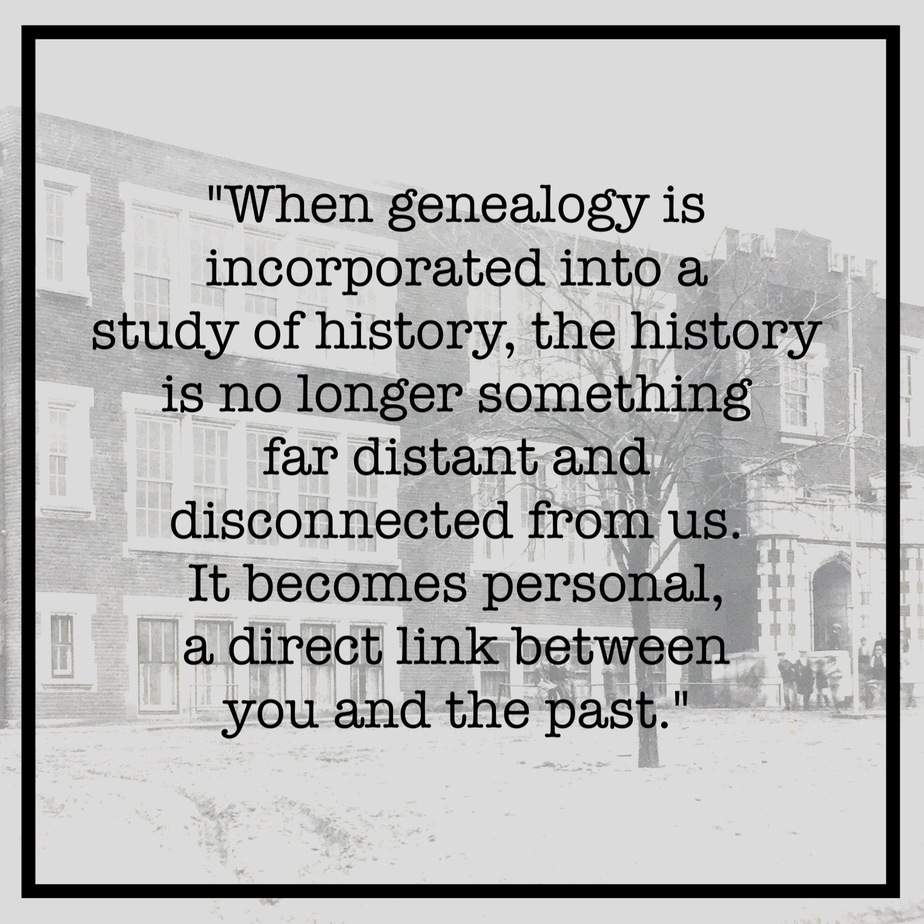
In fact, incorporating family history into school lessons doesn’t have to be limited to history. I have been surprised as we have been on this homeschool journey just how often we can utilize the stories and situations of our ancestors in our studies. Take economics: how about comparing the price of your great-grandfather’s starter home in 1949 ($6000) to the average starter home today ($250,000 in our area). This leads to all sorts of discussions about inflation and the value of a dollar. Not to mention, a comparison of the square footage of a home and lot back then to now; or how two sets of great-grandparents stayed in their starter homes for over 50 years, adding on as their families grew, vs today’s trend to move to a new home every 5-7 years.
Our studies have been deepened and enriched as we weave our genealogy in and through them. It truly does make the study more personal and memorable.

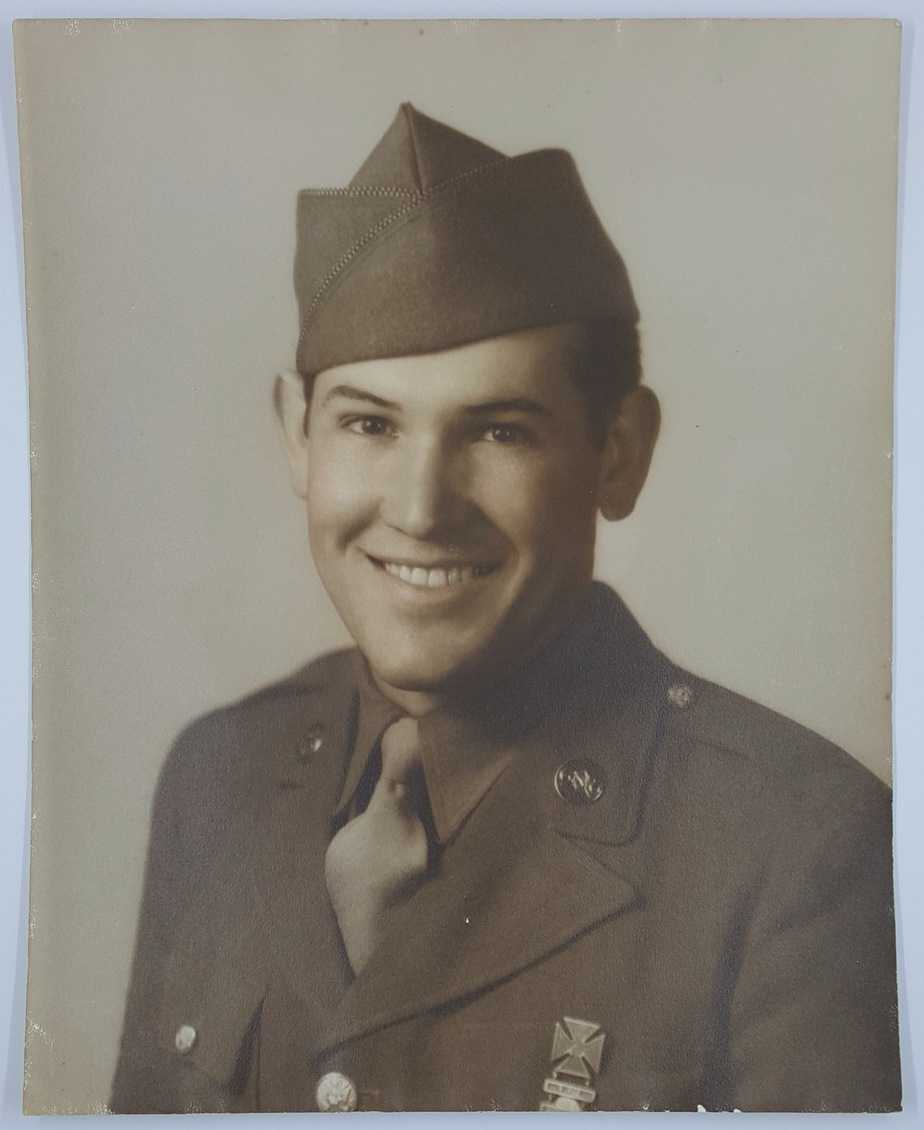



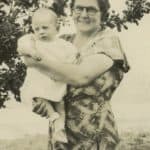

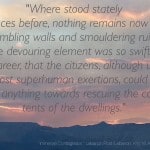
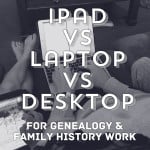
Nicole Dyer
April 2, 2016 — 5:34 am
Thank you for sharing! I love your thoughts about family history teaching about economics too, I hadn’t thought of that.
Melissa Finlay
April 2, 2016 — 1:13 pm
You are welcome. I am preparing a few more posts covering more of the specific projects we have worked on, but wanted to start with this overview.